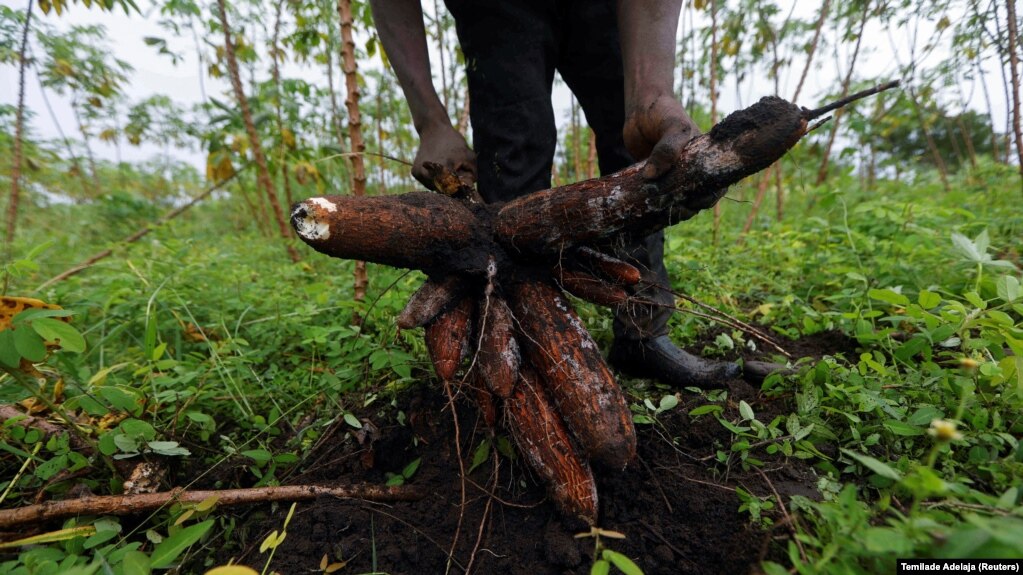
A farmer pulls out cassava during a harvest on a farm in Oyo, Nigeria
The population of sub-Saharan Africa is projected to double by 2050 according to the United Nations. That poses urgent challenges in terms of food security.
The population of sub-Saharan Africa is projected to double by 2050 according to the United Nations. That poses urgent challenges in terms of food security.
In early May, the U.S. State Department's Office of the Special Envoy for Global Food Security organized a panel discussion during the AIM for Climate Summit, to discuss the Vision for Adapted Crops and Soils, otherwise known as VACS. The initiative, launched in collaboration by the U.S. government, the African Union and the UN’s Food and Agriculture Organization seeks to adapt agricultural systems – starting with Africa – to the anticipated challenges of climate change. VACS focuses on the development of climate-resilient seeds and improvement of soil health to boost agricultural production.
“Today, … agriculture faces an historically unprecedented combination of challenges,” said U.S. Special Envoy for Global Food Security Cary Fowler. “Building food security really depends on our addressing all of these challenges.”
The panelists were some of the foremost experts in numerous fields affecting agricultural production, including Professor Lindiwe Majele Sibanda, Chair of the Consultative Group on International Agricultural Research or CGIAR [See-Jee-I-Eh-Ahr] System Board; Commissioner Josefa Sacko from the African Union Commission for Agriculture, Rural Development, Blue Economy, and Sustainable Environment; Dr. Cynthia Rosenzweig from the Agricultural Model Intercomparison and Improvement Project, or AgMIP and the Columbia Climate School; Lisa Safarian, President and Chief Operating Officer with the agricultural technology company Pivot Bio; and Dr. Robert Reiter, Head of Research and Development in Crop Science at Bayer.
Food security depends on addressing the fundamental aspects of having fertile soils and crops adapted to climate change, noted Dr. Fowler. “Yet what we find all around the world, and certainly in Africa, are depleted soils… Our crops are not sufficiently prepared for climate change. Our institutions are not sufficiently prepared.”
“We forged a partnership with the African Union and the Food and Agriculture Organization, but also with many others … to try to address this particular issue,” said Dr. Fowler.
“Pivot Bio is pursuing a fascinating approach to providing climate-neutral nitrogen directly to where it's needed, to the roots of our crops. Bayer has a very serious analysis of what ails us and is engaged in a wide range of scientific and philanthropic activities. Cynthia [Rosenzweig] is working with us from NASA and from Columbia Climate School on new climate modeling so we can better understand how the important, nutritious crops for Africa will fare in the current and future climates of Africa.”
“At the most fundamental level, those challenges in food security really depend on our having fertile soils and depends on having adaptive crops, adapted to climate change.”
No comments:
Post a Comment